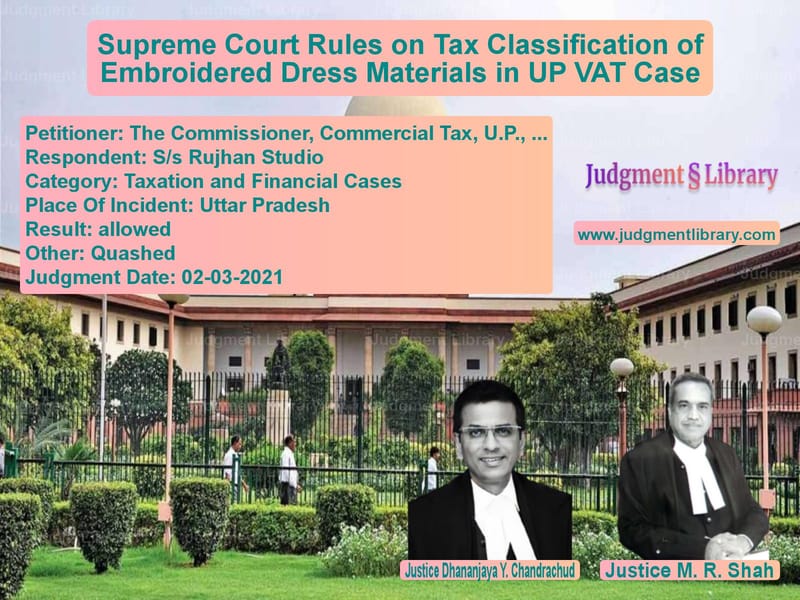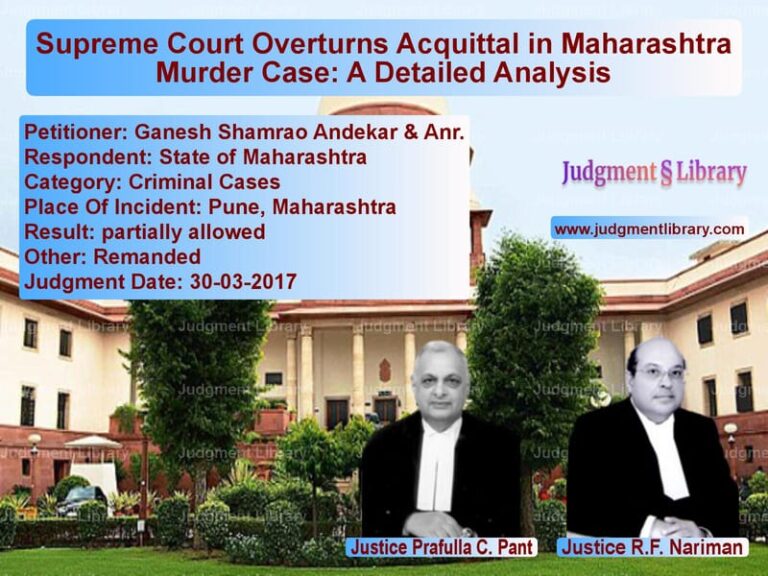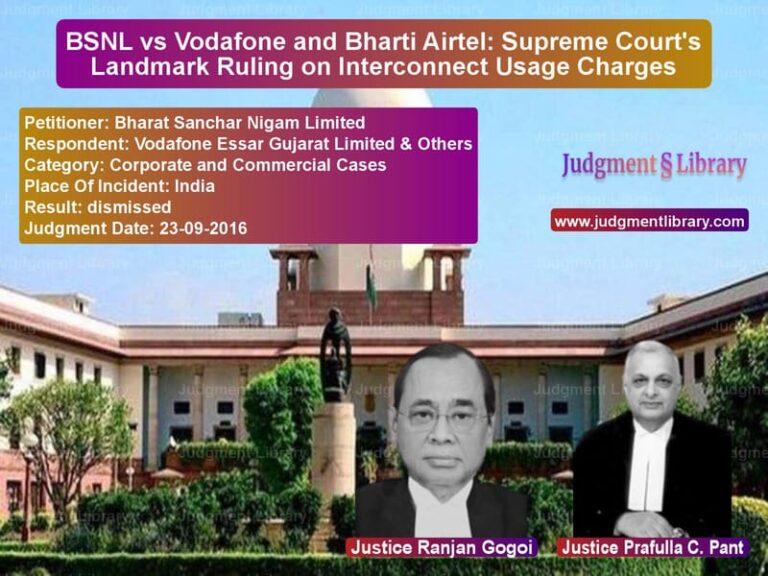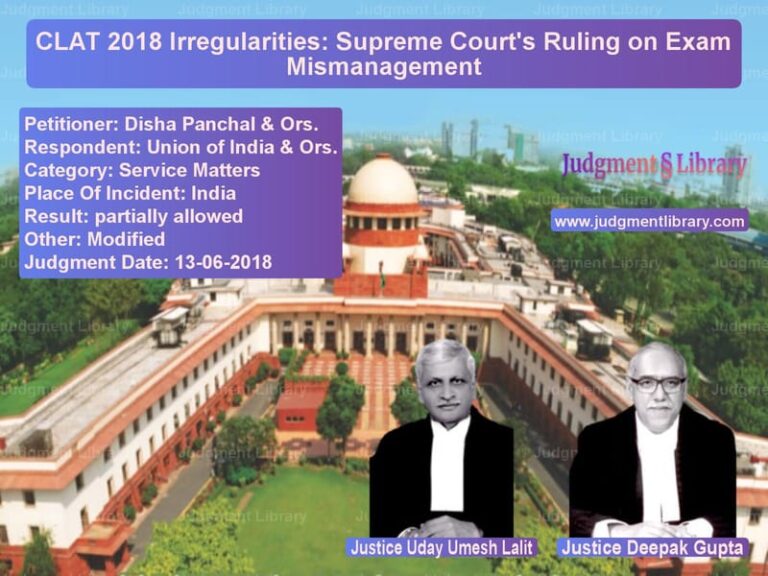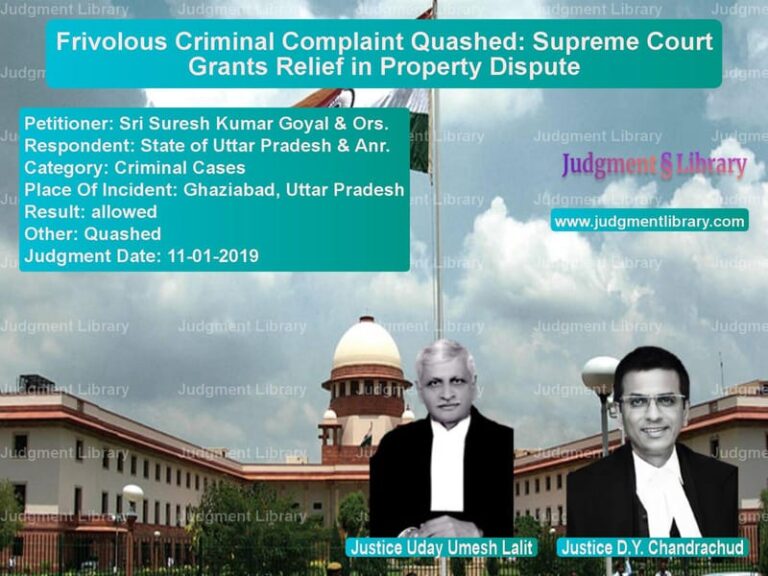Supreme Court Rules on Tax Classification of Embroidered Dress Materials in UP VAT Case
The Supreme Court of India recently delivered a crucial verdict in the case of The Commissioner, Commercial Tax, U.P., Lucknow v. S/s Rujhan Studio, concerning the classification of embroidered dress materials under the Uttar Pradesh Value Added Tax Act, 2008 (UP VAT Act 2008). The ruling clarified whether such materials should be categorized as ‘textiles’ and thereby exempt from tax or classified under taxable categories.
Background of the Case
The respondent, S/s Rujhan Studio, is a registered dealer engaged in the business of purchasing textiles and selling women’s dress materials. A survey was conducted by the Special Investigation Branch on March 9, 2010, which led to a dispute over the tax classification of the embroidered materials sold by the respondent.
Arguments by the Petitioner
The Commercial Tax Commissioner argued that:
- The embroidered suit materials sold by the respondent underwent a manufacturing process and could not be classified as mere ‘textiles.’
- The process involved cutting, designing, embroidery, and other modifications, which transformed the raw fabric into a distinct commercial product.
- The tax authorities initially classified the goods under Schedule V of the UP VAT Act, which levied a tax rate of 12.5% on unclassified goods.
- The High Court erred in upholding the tribunal’s classification of the goods as ‘textiles,’ exempt from tax.
Defense by the Respondent
The respondent, S/s Rujhan Studio, countered that:
- The goods were essentially unstitched textiles, sold as dress materials without final tailoring.
- The embroidery and minor modifications did not change the fundamental nature of the fabric.
- The High Court correctly upheld the exemption under Schedule I of the UP VAT Act.
Supreme Court’s Analysis and Observations
The Court examined the relevant provisions of the UP VAT Act, including:
- Schedule I, Entry 21: Exempted textiles, including handloom cloth and various fabric categories.
- Schedule II, Entry 16: Taxed ‘textile made-ups’ like bedsheets and pillow covers at 4%.
- Schedule V: Applied a general tax rate of 12.5% on goods not specified elsewhere.
The Court emphasized the definition of ‘manufacture’ under Section 2(t) of the Act, which includes processes like altering, ornamenting, and finishing.
Supreme Court’s Verdict
After reviewing the arguments, the Supreme Court ruled:
“The material ceases to be mere textile and assumes the character of a distinct commercial product due to the modifications. Therefore, it falls under the residual tax category.”
Key takeaways from the judgment:
- The goods cannot be classified as raw ‘textiles’ under Schedule I.
- They also do not fall under ‘textile made-ups’ in Schedule II.
- The appropriate classification is under Schedule V, making them taxable at 12.5%.
Conclusion
The Supreme Court set aside the High Court’s ruling and upheld the original classification by tax authorities. This verdict establishes a precedent for similar tax disputes, ensuring clarity on tax treatment for modified textiles.
Petitioner Name: The Commissioner, Commercial Tax, U.P., Lucknow.Respondent Name: S/s Rujhan Studio.Judgment By: Justice Dhananjaya Y. Chandrachud, Justice M. R. Shah.Place Of Incident: Uttar Pradesh.Judgment Date: 02-03-2021.
Don’t miss out on the full details! Download the complete judgment in PDF format below and gain valuable insights instantly!
Download Judgment: the-commissioner,-co-vs-ss-rujhan-studio-supreme-court-of-india-judgment-dated-02-03-2021.pdf
Directly Download Judgment: Directly download this Judgment
See all petitions in GST Law
See all petitions in Income Tax Disputes
See all petitions in Tax Refund Disputes
See all petitions in Judgment by Dhananjaya Y Chandrachud
See all petitions in Judgment by Mukeshkumar Rasikbhai Shah
See all petitions in allowed
See all petitions in Quashed
See all petitions in supreme court of India judgments March 2021
See all petitions in 2021 judgments
See all posts in Taxation and Financial Cases Category
See all allowed petitions in Taxation and Financial Cases Category
See all Dismissed petitions in Taxation and Financial Cases Category
See all partially allowed petitions in Taxation and Financial Cases Category

